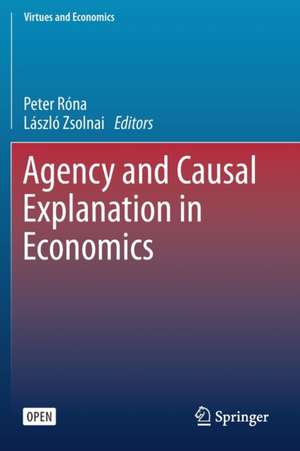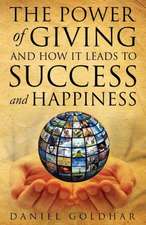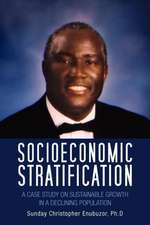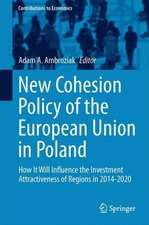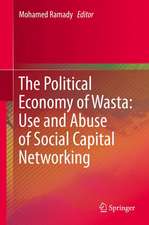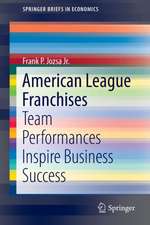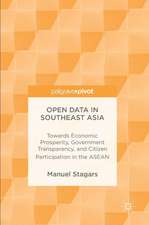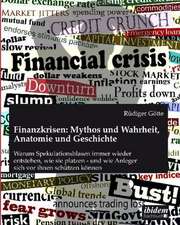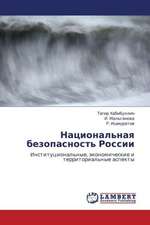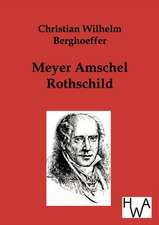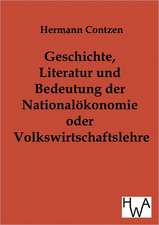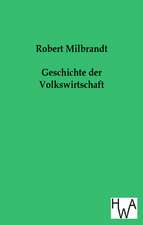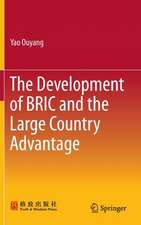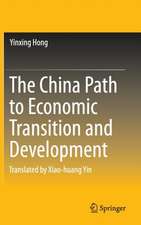Agency and Causal Explanation in Economics: Virtues and Economics, cartea 5
Editat de Peter Róna, László Zsolnaien Limba Engleză Paperback – 11 sep 2020
| Toate formatele și edițiile | Preț | Express |
|---|---|---|
| Paperback (1) | 381.98 lei 43-57 zile | |
| Springer International Publishing – 11 sep 2020 | 381.98 lei 43-57 zile | |
| Hardback (1) | 422.31 lei 22-36 zile | |
| Springer International Publishing – 15 noi 2019 | 422.31 lei 22-36 zile |
Preț: 381.98 lei
Nou
Puncte Express: 573
Preț estimativ în valută:
73.09€ • 76.51$ • 60.84£
73.09€ • 76.51$ • 60.84£
Carte tipărită la comandă
Livrare economică 31 martie-14 aprilie
Preluare comenzi: 021 569.72.76
Specificații
ISBN-13: 9783030261160
ISBN-10: 3030261166
Pagini: 188
Ilustrații: XV, 171 p. 2 illus.
Dimensiuni: 155 x 235 x 10 mm
Greutate: 0.27 kg
Ediția:1st ed. 2020
Editura: Springer International Publishing
Colecția Springer
Seria Virtues and Economics
Locul publicării:Cham, Switzerland
ISBN-10: 3030261166
Pagini: 188
Ilustrații: XV, 171 p. 2 illus.
Dimensiuni: 155 x 235 x 10 mm
Greutate: 0.27 kg
Ediția:1st ed. 2020
Editura: Springer International Publishing
Colecția Springer
Seria Virtues and Economics
Locul publicării:Cham, Switzerland
Cuprins
Preface.- Introduction.- Part I Theory.- Nadine Elzein: Free Will and Empirical Arguments for Epiphenomenalism.- Stephen Pratten: Causality, Agency and Change.- Jason Blakely: How Economics Becomes Ideology: The Uses and Abuses of Rational Choice Theory.- William Child: Economics, Agency, and Causal Explanation.- Part II Praxis.- Richard Conrad and Peter Hunter: Why Aquinas Would Agree That Human Economic Behaviour Is Largely Predictable.- Paul Clough: Agency, Time and Morality: An Argument from Social and Economic Anthropology.- Scott Meikle: The Switch from Agency to Causation in Marx.- Margaret S. Archer: Social Morphogenesis: Critical Realism’s Explanatory Approach.- Jonathan Price: Grotius’s Theological anthropology and modern contract doctrine.
Notă biografică
Peter Róna was born in Hungary in 1942. He emigrated to the United States in 1956, obtained his B.A. degree in economic history (cum laude) from the University of Pennsylvania in 1964, and his law degree from Oxford University (First Class) in 1964. He was an associate of the Washington, D.C, law firm, Arnold & Porter and counsel to the US Department of Commerce before becoming the personal assistant of Lord Richardson, Governor of the Bank of England. He joined the Schroder Group in 1969 as the General Counsel of its operations in the United Sates, and became the President and Chief Executive of the IBJ Schroder Bank & Trust co. in 1985. Shortly after the collapse of the Berlin Wall he returned to Hungary, where he managed an investment fund. In 2003 he joined the faculty of Eötvös Lóránd University where he taught public international law. In 2006 he was made an Honorary Professor of the University.
He joined the teaching staff of Blackfriars Hall in 2009, where heteaches an introductory course in economics and a more advanced one on the philosophical foundations of the social sciences. His published articles include a study of the Euro and an examination of the philosophical foundations of economics.
He joined the teaching staff of Blackfriars Hall in 2009, where heteaches an introductory course in economics and a more advanced one on the philosophical foundations of the social sciences. His published articles include a study of the Euro and an examination of the philosophical foundations of economics.
László Zsolnai is professor and director of the Business Ethics Center at the Corvinus University of Budapest. He is chairman of the Business Ethics Faculty Group of the CEMS (Community of European Management Schools−The Global Alliance in Management Education). He is president of the European SPES Institute in Leuven, Belgium. He has been guest professor or visiting scholar at University of Cambridge, University of Oxford, University of California at Berkeley, Georgetown University, University of Richmond, Concordia University Montreal, University of St. Gallen, Bocconi University Milan, and Netherlands Institute for Advanced Study.
Laszlo Zsolnai’s books include "The Collaborative Enterprise: Creating Values for a Sustainable World" (2010. Oxford, UK: Peter Lang Academic Publishers), „The Palgrave Handbook of Spirituality and Business” (2011. Houndmills, UK, New York, NY: Palgrave Macmillan), „Beyond Self: Ethical and Spiritual Dimensions of Economics” (2014. Peter Lang Academic Publishers, Oxford), and „The Spiritual Dimension of Business Ethics and Sustainability Management” (2015, Springer). Textul de pe ultima copertă
This open access book provides an exploration of the consequences of the ontological differences between natural and social objects (sometimes described as objects of nature and objects of thought) in the workings of causal and agency relationships. One of its important and possibly original conclusions is that causal and agency relationships do not encompass all of the dependent relationships encountered in social life. The idea that social reality is contingent has been known (and largely undisputed) at least since Wittgenstein’s “On Certainty”, but social science, and most notably economics has continued to operate on the basis of causal and agency theories borrowed or adapted from the natural sciences. This volume contains essays that retain and justify the partial or qualified use of this approach and essays that totally reject any use of causal and agency theory built on determined facts (closed systems).The rejection is based on the possibly original claim that, whereas causation in the objects of the natural sciences reside in their properties, human action is a matter of intentionality. It engages with critical realist theory and re-examines the role of free will in theories of human action in general and economic theory in particular.
Caracteristici
Open Access publication Provides an exploration of the consequences of the ontological differences between natural and social objects Examines theories historically offered with respect to social causation and agency and proposes and defends some alternatives Stipulates the fundamental differences in causality in nature as compared to social life with particular regard to economics Examines the nature of causation and agency in social life
